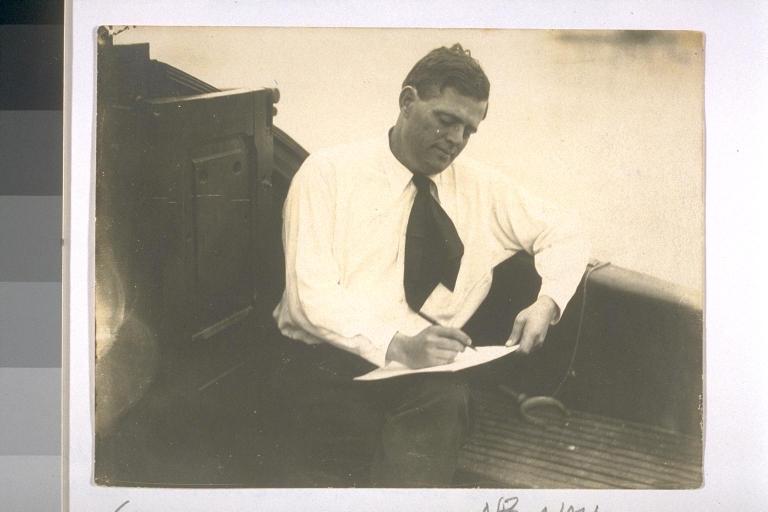Sunday, June 26, 2005
Making Connections
So called "science fiction" is speculative or extrapolative literature (or sometimes visual art or music) dealing in some way with the idea of change - most often changing human responses to the altered, or shifting of some alternative reality, most often, simply, "future fiction."
In Earth Abides the protagonist is "dealing" with the changes in his world and learning to respond to a "shifting" reality. Stewart's "future fiction" follows a common theme in post-apocalyptic novels, one of renewal and survival. In order to survive, and inevitably for a renewal to occur, "human responses" are altered. This battle for survival and renewal is a theme often used is used by SF writers.

.jpg) It is a theme Stephen King uses in his best selling novel, The Stand where the survivors are preparing for the ultimate battle between good and evil. King has stated that Earth Abides was the inspiration for his popular novel. In King's, On Writing, he acknowledges the influence science fiction has had on his writing and humorously points out why he enjoyed reading and watching SF:
It is a theme Stephen King uses in his best selling novel, The Stand where the survivors are preparing for the ultimate battle between good and evil. King has stated that Earth Abides was the inspiration for his popular novel. In King's, On Writing, he acknowledges the influence science fiction has had on his writing and humorously points out why he enjoyed reading and watching SF:[King] was a child who dug Yvette Vickers from Attack of the Giant Leeches, not Sandra Dee. "I wanted monsters that ate whole cities, radioactive corpses that came out of the ocean and ate surfers, and girls in black bras who looked like trailer trash."(Stephen King, On Writing, 2000)


Just as King was influenced by Stewart, some critics feel Stewart was influenced by Jack London, who in turn may have been influenced by the last surviving Yahi tribe member, Ishi. In David Pringle's, Apologies to Ishi, he calls London "the father of California sf." In June, 1912, one year after the "discovery" of Ishi, London's novella, The Scarlet Plague, was published in England by the London Magazine. London's story tells the tale of an old man in 21st century San Francisco (the year 2073) trying to explain "the days of automobiles and airplanes" to his "tribal" grandchildren who are living off the land of a now forested California (sound familiar class?).
influenced by the last surviving Yahi tribe member, Ishi. In David Pringle's, Apologies to Ishi, he calls London "the father of California sf." In June, 1912, one year after the "discovery" of Ishi, London's novella, The Scarlet Plague, was published in England by the London Magazine. London's story tells the tale of an old man in 21st century San Francisco (the year 2073) trying to explain "the days of automobiles and airplanes" to his "tribal" grandchildren who are living off the land of a now forested California (sound familiar class?).
The de-evolution of society, following a catastrophic event, provides much fodder for the sf writer and gives readers plenty to think about. Hmmm . . .what if ?

"I do not know with what weapons World War III will be fought, but World War IV will be fought with sticks and stones." Albert Einstein

